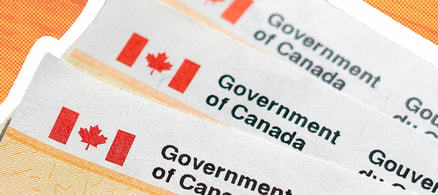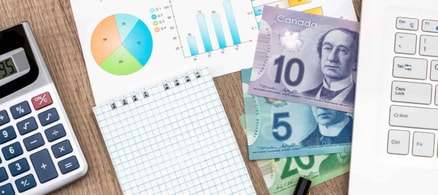What retiring without a pension looks like
You may have had visions of travelling the world when you retire, spending your days lying on the beach or finally pursuing your lifelong dream of climbing a mountain. You can still accomplish some of these things even without a pension, but you might need to set your expectations a little lower.
No matter your age, speaking with a financial advisor should be a first step. You want to have a clear plan for retirement, and if sailing the Atlantic is on your list of things to do, you need to find out if this is a financial possibility.
A financial advisor will work with you to examine what age you want to retire at, what your assets are, what your savings are and all other aspects of your financial portfolio. With a clear picture of what your ambitions are, they can help you map a way to make the vision a reality.
Of course, the younger you are when you start planning for retirement, the better off you'll be. More time means more opportunities to save money, which means greater growth potential for your portfolio.
When saving for retirement, remember that having a diverse investment portfolio is an ideal way to save. Having money invested in a combination of long- and short term investments can ensure you will always have money at your disposal.
Maximize Your Tax Refund with TurboTax Canada!
Simplify tax season with this user-friendly software. Get step-by-step guidance, maximize deductions, and file with confidence. Trusted by millions, TurboTax Canada ensures accuracy and peace of mind. Start your taxes today and get the refund you deserve
Get the tax refund you deserveSources of retirement income
In Canada, there are typically three sources of retirement income:
The Canadian Pension Plan (CPP) or Quebec Pension Plan (QPP)
During your working years, you contribute to either the CPP or QPP depending on where you live. When you work in Canada, a contribution is typically made as a deduction on your paycheque.
When you turn 60, you can apply to start claiming your monthly pension benefit. The monthly benefit you receive will depend on how much you have contributed over your working years and at what age you begin to receive it.
Old Age Security (OAS)
The OAS pension is a benefit provided to Canadians 65 years of age and older. It’s a monthly benefit that you’ll receive assuming that you’ve lived in Canada for at least 10 years, and that you’re a citizen or legal resident.
Pension plans and personal savings and investments
This is potentially the largest part of your retirement savings. Consider this your nest egg: the money you’ve been saving throughout your life to provide for you in your old-age.
There are pensions that are contributed to by your employer and personal accounts like registered retirement savings plans (RRSPs) and like Tax Free Savings Accounts (TFSAs).
Personal pensions and TFSAs can be made up of a different combination of investment and savings products. You can find out more about these plans by speaking with your bank or a financial advisor.
Other savings and investments can include stocks, bonds, your home, money kept in chequing or savings accounts and any other asset you have that has monetary value.
While financial advisors recommend investing 10% of each paycheque, the reality is that isn’t always possible.
The best way to plan for retirement is to anticipate that you'll require all three levels of retirement income. You want enough invested so you can have a steady income while knowing that the government's pension plan and old age security are there to fill any gaps you might have in savings.
How much savings do you need to retire?
There’s no one size fits all answer to how much savings you’ll need to retire. There are a number of factors that come into play, all of which affect your bottom line. Some things to consider are:
- Whether or not you’re supporting a partner
- Whether or not you’re supporting children
- Whether or not you have a mortgage
- What medical needs you have
- What type of lifestyle you want to live
- What your expenses will be
- What your pre-retirement income will be
- Your ideal retirement age
No matter what your circumstances, you’ll want to have a clear idea of how much money you’ll need on a month-by-month basis to retire comfortably.
For instance, if you’re no longer supporting kids, and want to reduce your expenses by downsizing your home, you can anticipate that you’ll require less income than you did in your pre-retirement stage.
If you want to travel while maintaining your pre-retirement home, you need to account for the added expense that your adventures will cost.
While some estimates state you’ll require 70-80% of your pre-retirement income annually, this amount varies from individual to individual. Some experts say that you’ll require about $1 million in savings to retire comfortably. Others state you should have about 10 times the amount of your yearly income saved to maintain your lifestyle in retirement.
One of the best first steps you can take in planning for your retirement is to look at all your current monthly expenses and budget accordingly.
When forecasting your retirement expenses, consider day-to-day expenses as well, such as whether you’ll be using a car as frequently or if you will be going out for meals as often.
While you’re at it, you may be surprised to discover how much you’re spending on certain things, and might be able to save some money in the present.
Grow Your Savings Effortlessly with Moka
Automate your savings with every purchase and watch your money multiply. Moka rounds up your transactions and invests the spare change. Start building wealth effortlessly today. Join thousands of Canadians embracing financial freedom with Moka
Sign up nowRetirement savings strategies
Without an employment sponsored pension, you can still establish a retirement savings strategy.
GICs
Investing in a Guaranteed Investment Certificate (GIC) is a great way to establish some return on an investment. As the name suggests, you get a guaranteed return so they are typically a safe way to invest money. With a GIC, you lock in your money for a set term, and once it’s matured, you can begin to withdraw your money, along with any interest.
While GICs can guarantee a return, you might not get as high an interest rate as you’d experience with other investments. Similarly, if you tie up all your money in GICs, you could miss out on other opportunities that can yield better returns.
Remember, a balanced investment strategy is always the best, especially when you’re looking at long-term savings.
Homeownership
If you own a home, there are a few ways you can use your residence to help you in retirement. One way is to get a reverse mortgage, an option that is available to homeowners over the age of 55.
Reverse mortgages give you access to a loan tied to your home’s equity, and you generally don’t have to make payments on it until you sell the home, move out, or pass away.
While reverse mortgages can be helpful, they can have high costs, so it’s best to speak to a financial advisor and a mortgage broker before choosing this approach.
Another way to make money off of your house is by renting out either part, or all of it. Having a tenant will allow you to make a steady source of income that can help you through your retirement.
Selling your home and downsizing to a smaller residence is also a great way to create capital for your retirement. And if you live in a big city, you might consider moving to a smaller town that has a lower cost of living. This can save you money on everything from property taxes to groceries, and the quieter way of life might be a welcome change.
If you want to hold on to your home and you have offspring or relatives living in your region, you might consider multigenerational living. Having more than one generation of a family living under the same roof is a great way to reduce your expenses and maintain a strong bond with other family members. The federal government will also introduce a tax credit for individuals who renovate their homes in order to accomodate multigenerational living.
Retirement life
You can think of your retirement life in three stages. The first is your early retirement when you’re still active, the second is your reduction or downsizing phase, and the third is your dependent stage.
If you don’t have a pension, the most important stage of your retirement life is your early active phase. During this phase, consider finding part-time work to supplement your income, or to allow you to defer tapping into your CPP or OAS.
You might want to try your hand at a different career, or work as a consultant in your chosen profession. Not only will you be able to continue making money, but you’ll be keeping your mind and body active in the process.
If you’re currently without an employee-sponsored pension, be sure to create a budget to find out how much you might need to retire. No matter your age, it’s never too late to speak to a financial planner who can help you achieve your retirement goals.
Sponsored
Trade Smarter, Today
With CIBC Investor's Edge, kick-start your portfolio with 100 free trades and up to $4,500 cash back.







